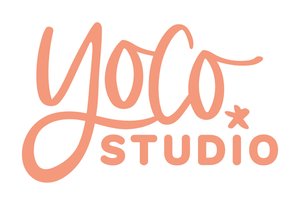TODAY, WE’RE TAKING A LOOK AT TRANSITIONING INTO A DIFFERENT CAREER IN TECH AND ADVICE ON GETTING SEEN.

To help us answer these questions is coach, Fiona Hatton.
As a coach, Fiona supports women to live a happier life: through prioritising their wellbeing, doing more of what they love, and focusing on what really matters to them. She has worked with women who’ve gone on to change career, leave a toxic workplace, and make big life decisions about where (and how) they want to live.
Join the Yoco Studio community for free resources, useful tips and offers. Fiona is offering 30% off all bookings in July. Find out more about her coaching and yoga packages at http://www.yoco.studio.

IF YOU HAVE ANY QUESTIONS FOR US – WHETHER IT BE ABOUT WORK RELATIONSHIPS, GAINING CONFIDENCE, OR TAKING THE LEAP INTO TECH – YOU CAN ASK US ANYTHING.
Hello SheCanCode,
I’m trying to transition from my data analyst role in the public sector (NHS) to a data analyst role in tech or consulting, but I’m not getting interviews. Do recruiters automatically screen out candidates who don’t have commercial experience? What can I do to increase my chances? Are there recruitment specialists I can talk to?
Best,
Career Transitioner
HEY CAREER TRANSITIONER,
Deciding to make a change is often a result of countless hours of soul-searching, so it can be frustrating when momentum stalls, or it feels that we’re being blocked by things that seem out of our control. Before you lose heart, try asking yourself the following questions. They could help to make the most of this time, and focus your efforts in places that will make the most difference.
Why do you want to make the move?
This will help you understand your motivation, and keep you focused during your job search. Think about what a move to this new sector will give you. Perhaps there will be opportunities to work on different types of projects? Or will it give you the chance to grow outside work too?
Now try to distil this into one sentence, write it out, and keep it somewhere you can see it. This is what my own coach calls her ‘Big Why’. It’s not only a reminder of why you’ve chosen to make this change, it’s also a great way to make decisions when new opportunities come your way – how do they support your Big Why?
What transferable skills do you have?
It might sound obvious, but mapping out your own skills against what is being asked for is a first step to finding out what transferable skills you have. I’m guessing you have lots – but even if you find that you don’t, this is not a disaster. Knowing where you’re missing essential skills means you can do something about it, perhaps all it will take is doing something slightly differently in your current role, or maybe some formal training.
Speaking to someone in the sector you want to move into, to find out whether your missing skills really are essential could be a big help here too.
How will you demonstrate your transferable skills?
The stickier part for some of us is knowing how to present our transferable skills, so that we show at first glance that we are right for the role.
Don’t assume that the recruiter will be able to identify that your skills are relevant. Instead, cut out any jargon that’s specific to your current sector, and draw out real-life examples that show those skills in action. Make sure there’s no room for misunderstanding and the recruiter can see straight away that your experience fits the role.
Who’s in your community?
Take a look at your network and identify people who could share insight into what’s needed to make the move. Perhaps you have a connection who already works in the sector you want to join, or you know someone who has made a career change and can explain the steps they took.
Next, consider other people you could connect with, who could help you on your journey. Do you know someone who could introduce you? How else could you build your community ahead of changing roles?
What’s working? (And what isn’t?)
Learning lessons throughout this experience is really valuable. Take time out to look at what you’ve already done in your job hunt. Identify the most useful activities – how could you build on them? And think about what has taken time and effort, but hasn’t quite hit the mark. Will you change your approach in the future?
Job hunting can be a gruelling process, and it can be very disheartening to miss out on interviews or roles. My final suggestion is to think about how you can look after yourself during this time, so that your job hunt doesn’t become your only focus, and so that you can still enjoy other parts of your life. Make time for some fun, and I’m confident you’ll find the right role for you!








